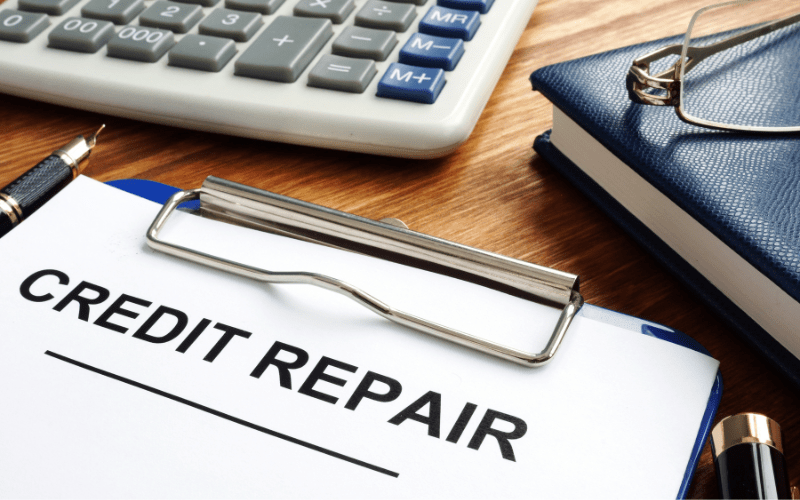Buying your first house is an exciting step, but it often involves understanding how your credit score impacts the process. Credit scores play a significant role in determining your eligibility for a mortgage. Let’s explore what credit scores you need to buy a house and ways to improve your credit score through credit repair and restoration.
Exploring the Minimum Credit Score Requirements for Buying a House:
Buying a house is a big step, and your credit score plays a crucial role. Lenders typically have minimum credit score requirements for different types of home loans. For instance, conventional loans might require a minimum FICO score of 620, while FHA loans might be more flexible, accepting scores as low as 500 with a larger down payment.
However, it’s essential to note that a higher credit score often leads to more favorable loan terms, such as lower interest rates and smaller down payments. Understanding these requirements can help you work towards improving your credit score to secure better financing options for your dream home.
How Credit Repair Impacts Your Ability to Buy a House?
Your credit score isn’t set in stone. Sometimes, errors or inaccurate information can bring down your score. This is where credit repair steps in. By identifying and addressing discrepancies, removing inaccuracies, or negotiating settlements on outstanding debts, credit repair services can significantly improve your credit score.
When it comes to buying a house, a higher credit score opens doors to better mortgage rates and loan approvals. Credit repair helps in correcting any errors that may hinder your ability to secure a mortgage. It’s a proactive step toward ensuring your credit score accurately reflects your financial responsibility, ultimately improving your chances of qualifying for a home loan with favorable terms.
What Factors Besides Credit Scores Influence Lenders’ Decisions?
While credit scores play a pivotal role, lenders take various other factors into account when evaluating mortgage applications. Understanding these additional considerations is crucial for prospective homebuyers.
1.Debt-to-Income Ratio (DTI) and Its Importance:
Lenders closely scrutinize your debt-to-income ratio, comparing your monthly debt payments to your gross monthly income. A lower DTI ratio demonstrates that you have manageable debt and are in a better position to take on a mortgage. Typically, lenders prefer a DTI ratio below 43%. Managing and reducing existing debts before applying for a mortgage can positively impact your DTI and increase your chances of loan approval.
2.Employment History and Stability:
Your employment history and stability are significant indicators of your ability to make consistent mortgage payments. Lenders assess your employment status, including job stability, length of employment, and income consistency. A stable job history and a steady income stream often instill confidence in lenders regarding your repayment capabilities. However, being self-employed or having frequent job changes may require additional documentation to prove income stability.
Besides these factors, lenders may also consider other financial aspects, such as savings, down payment amount, and the type of property being purchased. Understanding and proactively managing these factors can enhance your overall mortgage application, increasing the likelihood of loan approval with favorable terms.
How Your Credit Score Directly Influences Mortgage Rates?
Your credit score isn’t just a number; it significantly affects the interest rates you’ll receive when applying for a mortgage. Understanding this correlation is vital for potential homebuyers.
1.Understanding Interest Rates Based on Credit Scores:
Lenders use credit scores as a risk assessment tool. A higher credit score signals to lenders that you’re a responsible borrower, leading to lower interest rates on your mortgage. Conversely, a lower credit score implies higher risk, resulting in higher interest rates to compensate for that risk. The difference in interest rates between excellent and fair credit scores can amount to thousands of dollars over the life of a mortgage.
2.Long-Term Implications of a Lower Credit Score:
A lower credit score not only means higher interest rates but also leads to increased borrowing costs throughout the loan’s duration. Over a 30-year mortgage, even a slightly higher interest rate due to a lower credit score can result in significantly more money paid in interest. For instance, someone with a lower credit score might end up paying tens of thousands more in interest compared to someone with an excellent credit score for the same loan amount.
Improving your credit score before applying for a mortgage can translate into substantial savings in the long run. Even a small increase in your credit score can lead to more favorable interest rates and considerable savings over the life of your loan.
Understanding the direct impact of your credit score on mortgage rates emphasizes the importance of maintaining and improving your credit score before seeking a home loan, as it directly affects the affordability of your mortgage.
Understanding the Components That Comprise Your Credit Scores:-
Your credit score is a reflection of various financial behaviors and factors. Knowing what these elements are and how they contribute to your overall score can help you take targeted actions to improve it.
1.Payment History and Its Weightage:
Your payment history holds substantial weight in determining your credit score. It indicates how consistently you make on-time payments for credit cards, loans, and other debts. Missing or late payments can significantly impact your score negatively. Each timely payment contributes positively to your score, showing creditors that you’re reliable and responsible in managing your debts.
2.Credit Utilization and Types of Credit:
Credit utilization refers to the ratio of your credit card balances to your credit limits. High utilization can signal financial stress and potentially lower your credit score. Aim to keep your credit utilization below 30% to maintain a healthy score. Additionally, the types of credit you have, such as revolving credit (like credit cards) and installment loans (like mortgages or car loans), influence your score. A mix of credit types can positively impact your score, showcasing your ability to handle various credit responsibilities responsibly.
Other factors contributing to your credit score include the length of your credit history, the number of new credit inquiries, and any derogatory marks like bankruptcies or foreclosures.
Understanding how these factors collectively shape your credit score empowers you to take proactive steps towards improving it. By focusing on maintaining a positive payment history, managing credit utilization, and diversifying your credit portfolio, you can gradually raise your credit score over time.
Remember, each element plays a crucial role in determining your creditworthiness, and a holistic approach to managing these factors can lead to a healthier credit score.
Effective Strategies to Enhance Your Credit Scores:
Improving your credit score is a gradual process that involves adopting smart financial habits and staying proactive about monitoring your credit health. Here are key strategies that can positively impact your creditworthiness:
1.Paying Bills on Time and Reducing Debt:
Timely bill payments are one of the most influential factors in boosting your credit score. Missing payments can significantly harm your score, so setting up automatic payments or reminders can help ensure punctuality. Moreover, reducing overall debt can improve your credit utilization ratio, positively impacting your score. Developing a repayment plan to systematically pay down outstanding debts, especially high-interest credit cards, can contribute to a healthier financial profile.
2.Regularly Monitoring Your Credit Report:
Monitoring your credit report is vital for spotting inaccuracies, fraudulent activities, or any inconsistencies that may impact your score. You’re entitled to a free annual credit report from each of the major credit bureaus. Reviewing your report regularly allows you to address any errors promptly. Additionally, monitoring your report helps you track your progress as you work on improving your credit score, ensuring that positive changes are accurately reflected.
Beyond these strategies, consider maintaining a healthy credit mix, avoiding opening multiple new accounts at once, and keeping old accounts open to lengthen your credit history, all of which can contribute positively to your credit score over time.
Patience and consistency are key when it comes to improving your credit score. It’s a gradual process, but by implementing these strategies and staying vigilant about your financial habits, you can steadily enhance your creditworthiness.
Remember, each positive step you take towards managing your finances responsibly contributes to an improved credit score, setting you on the path to better financial opportunities.
Read Also: DIY Credit Repair: Practical Steps to Improve Your Score
How Credit-Friendly Solutions Can Be Your Partner in Credit Score Restoration?
Credit-Friendly Solutions understands that each individual’s credit situation is unique. By offering tailored solutions and professional guidance, they strive to assist individuals in their journey towards credit repair and score improvement.
1.Tailored Solutions for Credit Repair:
Credit-Friendly Solutions doesn’t believe in one-size-fits-all approaches. They assess each client’s credit report meticulously, identifying inaccuracies, discrepancies, or areas for improvement. By employing personalized strategies, such as disputing errors, negotiating with creditors, or providing guidance on debt repayment plans, they aim to address specific issues that may be adversely affecting credit scores. These tailored solutions are designed to align with individual financial goals and circumstances.
2.Professional Guidance for Score Improvement:
The team at Credit-Friendly Solutions comprises experienced professionals well-versed in the nuances of credit repair and score enhancement. They provide expert guidance on best practices for improving credit scores, offering insights on prudent financial habits, effective debt management strategies, and steps to maintain a positive credit profile. This guidance empowers individuals with the knowledge and tools necessary to make informed decisions and take proactive steps towards better credit health.
Their commitment extends beyond mere credit repair. They focus on educating clients about credit-related matters, fostering financial literacy, and providing ongoing support to ensure sustained progress in credit score restoration.
Partnering with Credit-Friendly Solutions means gaining access to a team dedicated to your financial well-being, offering personalized solutions and professional expertise tailored to your unique credit situation.
Remember, a collaborative effort with professionals who understand your credit needs can expedite the credit restoration process and set you on the path to financial empowerment and improved credit scores.
Conclusion:
Understanding the relationship between credit scores and buying a house is crucial for first-time buyers. While credit repair and score restoration can be challenging, taking steps to improve your credit score can significantly impact your ability to secure a mortgage.
For more personalized guidance on credit repair and score restoration, reach out to Credit-Friendly Solutions at info@creditfriendlysolutions.com or call +1 (916) 680 8501.







